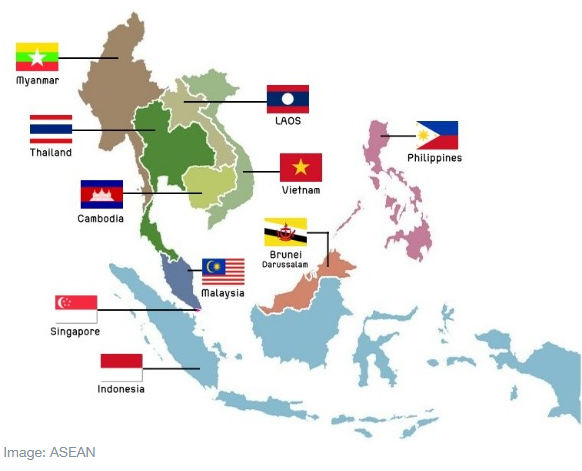0%

Source-The Economic Times
BANGKOK: Southeast Asian leaders gathered in Bangkok on Saturday (Jun 22) were all determined to drive forward the world’s largest commercial pact in the backdrop of the trade war between the US and China clouding the outlook for their export-led economies.
Disputes in the flash-point South China Sea, Myanmar’s persecution of Rohingya Muslims and plastic pollution in the seas are also the key issues set to be discussed at the two-day Association of Southeast Asian Nations (ASEAN) summit, chaired by Thailand.
But trade will take center stage with ASEAN leaders keen to hasten the signing of a China-drafted commercial deal covering around half the world’s population.
The Regional Comprehensive Economic Partnership (RCEP) includes all 10 ASEAN economies, plus India, Japan, South Korea, Australia and New Zealand.
It is seen as a mechanism for China to draft the rules of Asia-Pacific trade, following a US retreat from the region. Shortly after his election, President Donald Trump pulled the US from the Trans-Pacific Partnership (TPP) – which would have been the world’s largest trade deal – condemning it as an American “job killer”. While tit-for-tat tariffs between the world’s biggest two economies have seen some manufacturers flee China to safer ASEAN hubs, economists say the big picture for global growth is bleak.
In that context, “RCEP is key to increasing trade volume”, Thai government spokesman Werachon Sukhondhapatipak told reporters. “The faster it (RCEP) gets implemented the better,” Martin M Andanar, Philippines Communications Secretary, told reporters.
“Free trade is definitely what we need here in this region,” he said, adding that the US-China trade row has resulted in “the entire world catching a cold”. Progress on the deal has slowed down in recent months with India digging in over fears cheap Chinese goods could flood its massive consumer market. Australia and New Zealand have also raised concerns over a lack of labor and environmental safeguards. (Agencies)